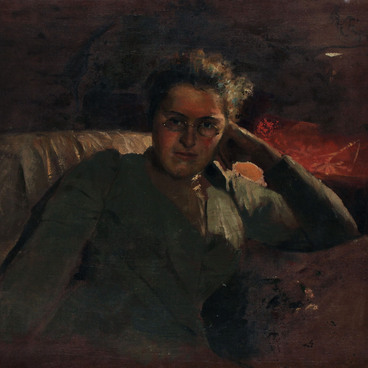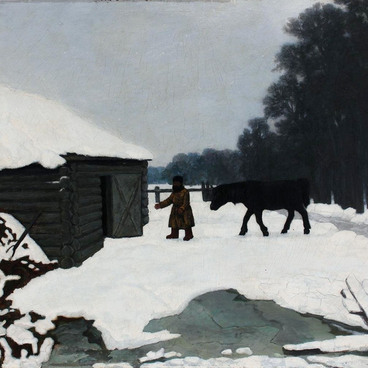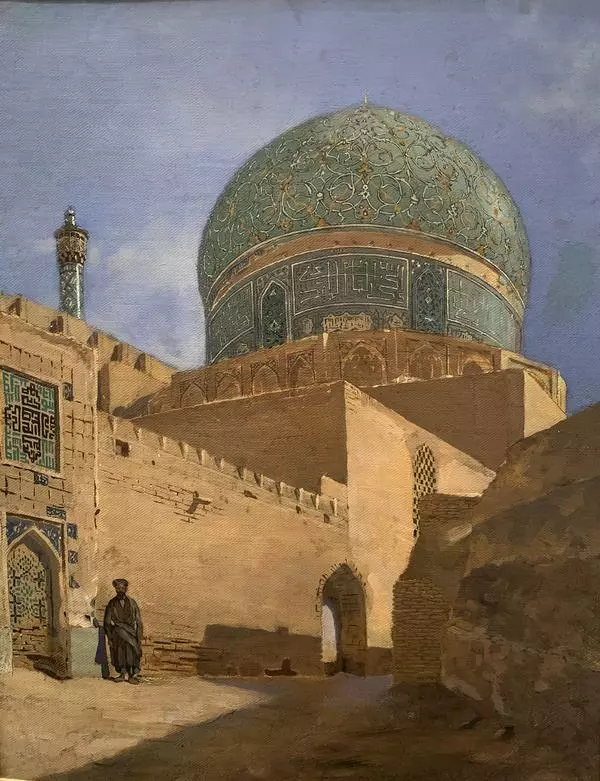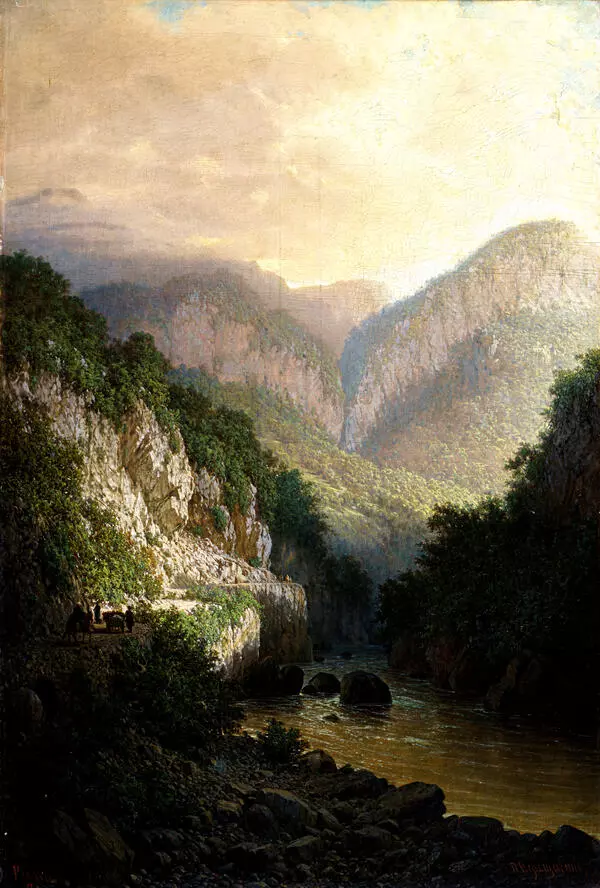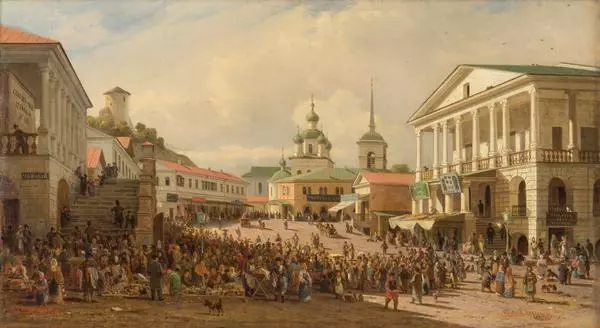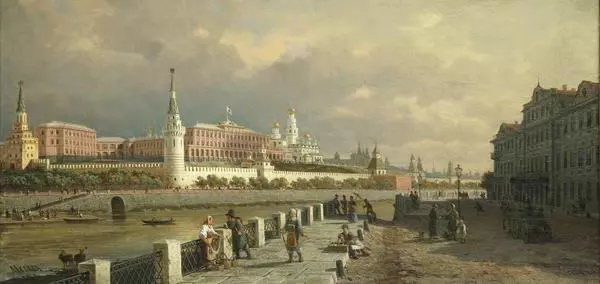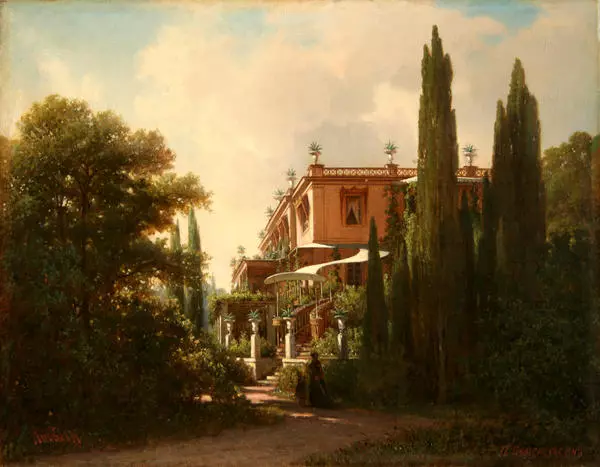Pyotr Petrovich Vereshchagin (1836–1886) was a renowned Russian landscape painter of the second half of the 19th century. He created architectural panoramas and was an Academician of the Imperial Academy of Arts in St. Petersburg. This talented artist created unique “landscape portraits” of many Russian cities, combining cityscapes with everyday scenes. These “portraits” include the impressive painting “View of Sevastopol from Malakhov Kurgan”, completed in 1871 and currently housed by the State Russian Museum. However, his most renowned landscape painting is the view of the Kokorevskoye Podvorye (Courtyard), which he often repeated with slight variations.
In this work from the Sevastopol collection, the artist depicted the Kokorevskoye Courtyard which has been preserved on the Sophia Embankment. The impressive view is enhanced by the Kremlin on the other side of the Moskva River.
This is a unique complex of buildings that form a courtyard stretching far to Bolotnaya Street. The project was designed by the architect Ivan Chernik. The courtyard was constructed by the merchant Vasily Kokorev in the early 1860s. It was originally intended to be a hotel with shops and wholesale warehouses. Over the years, the guests of the hotel included the writers Leo Tolstoy, Pavel Melnikov-Pechersky, and Dmitry Mamin-Sibiryak, the artists Ivan Kramskoy and Vasily Polenov, and the composer Pyotr Tchaikovsky.
Vasily Alexandrovich Kokorev (1817–1889) was an entrepreneur, millionaire, owner of large land plots, and philanthropist. He was known for his successful financial transactions, and was involved in various industries, including railway construction, wine taxing, and oil exploration in Baku. Vasily Kokorev was also an active public figure, historian, art collector, and honorary member of the Imperial Academy of Arts. He also owned a renowned art gallery. Crimeans and especially residents of Sevastopol were grateful for his support in organizing a festive reception in honor of the Black Sea sailors who defended Sevastopol and came to Moscow after the Crimean War.

